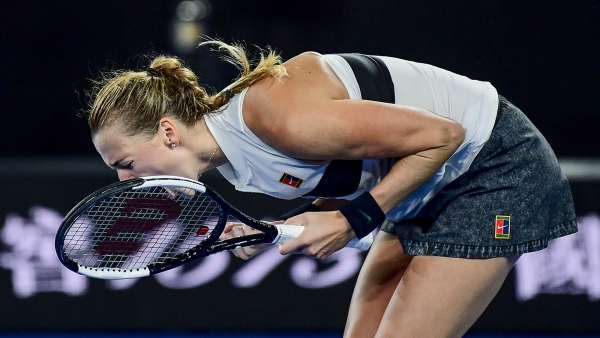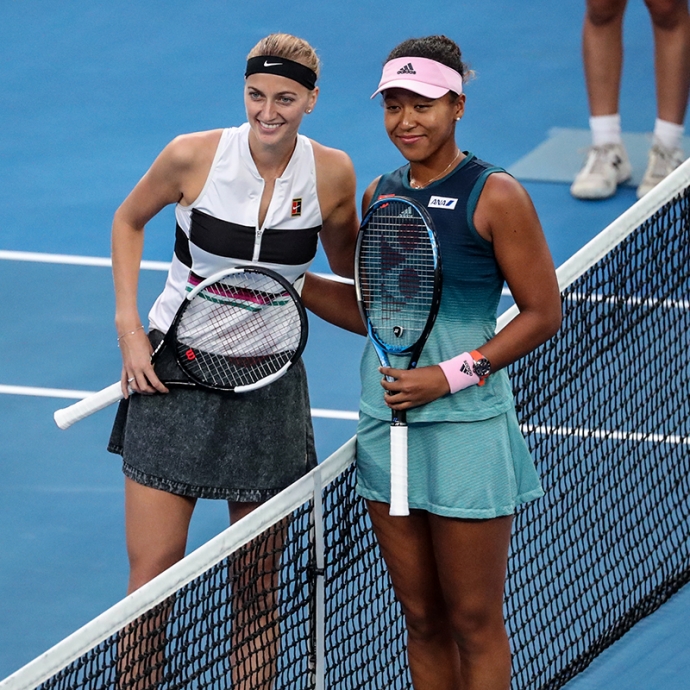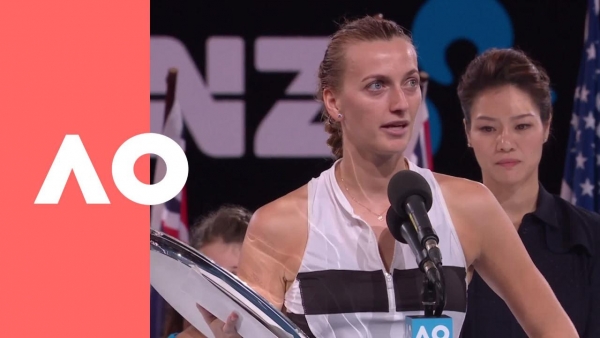Petra Kvitova considers herself one of the lucky ones.
It is difficult to feel that way immediately after a first defeat in a Grand Slam final, but she sees the bigger picture.
The Czech concedes this one will likely linger longer than most.
By her admission, the stakes were higher than in either of her two previous Wimbledon victories.
And before squaring off against Naomi Osaka for the Australian Open trophy on Saturday night, she hadn’t fallen in her past eight tour finals.
MORE: Osaka wins AO title, takes No.1 ranking
“Yeah, it's painful, for sure,” Kvitova said of the two-hour, 30-minute battle. “I don't know how long it will take me to get over it. When I look back, I did have my chances in the first set when I had 40-love on her serve. I did have a few break points.”

Missed opportunities rued, no doubt. Kvitova will play them out in her mind over and over once the media commitments die down.
But she will find solace in the fight conjured. She stood a set and 3-5 down, had three match points against her serve, and somehow she stole the second set to force a decider.
Victory would have lifted the Czech to the world No.1 ranking for the first time. Had she gone on to secure the third set, she would have become the first woman to save match points in an Australian Open final since Jennifer Capriati denied Martina Hingis in the 2002 title match.
The grit should come as no surprise, given what Kvitova has endured since a knife attack at her home two years ago.
“I'm not proud at all right now,” she joked to the press. “No, definitely I am, for sure. It will be very bad if I'm not.
“As I said, it's hurting a lot today. I wanted to win and have the trophy. But I think I already won two years ago.
“So for me, it's amazing. I think I still don't really realise that I played the final.”
Standing on the dais for the trophy ceremony, the emotions are raw, understandably more so than when she chats with the press an hour later.
The noise on Rod Laver Arena grows louder as Kvitova pauses with the runner-up plate reflecting light onto her face.
Tears well as the crowd acknowledges what she has been through.
Players often credit Australian fans with their broad knowledge of sport.
This crowd is no different, sensing Kvitova’s tears are less out of defeat than of the culmination of a long road back.
“Thank you for sticking with me even when we didn't know if I would able to hold a racquet again,” Kvitova musters as she composes herself to thank her team.
It had been five years since the 28-year-old had last played a major final.
Though Kvitova always believed she would return to top-flight tennis, her doctors had serious doubts.
“I probably didn't really put kind of these high goals in my mind,” Kvitova said of her return. “I never really put kind of this ranking-wise to my head.
“I wanted to be back on my greatest level probably as I played before. I knew it will be very, very difficult because my hand, it's not 100 per cent, and never will be. It's just how it is.”
Osaka, at 21, is the same age as the Czech when Kvitova first won Wimbledon.
Kvitova hopes the Japanese star is better prepared than she was to handle the hype.
“Definitely she is a great one. We'll see what the future will bring,” Kvitova said of Osaka’s chances at dominating the women’s game. “But for sure she has probably everything to be there.”
The same was said of Kvitova at the time of her Grand Slam breakthrough.
Priorities have shifted in the seven-plus years since, but her long road back has her fighting it out for major trophies again.

